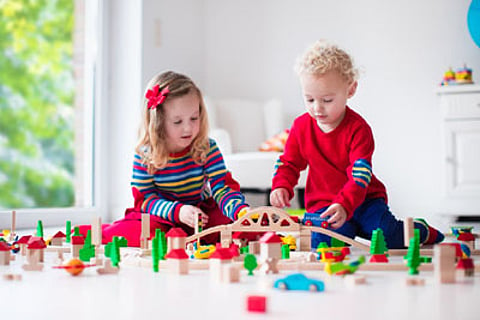
- Home
- Live Blog
- Breaking News
- Top Headlines
- Cities
- NE News
- Sentinel Media
- Sports
- Education
- Jobs

LITTLE THINGS ABOUT
LITTLE ONES
Dr. Gayatri Bezboruah
We are always discussing about the right age to start sending our little ones to school. We usually do what everybody like us are doing, or we follow the system we followed with the older child. The concept of "school readiness" is controversial. There is no consensus on whether there is a defined set of skills needed for success on school entry, and whether certain skills predict later achievement. By the age of 5 years, most children have the ability to learn in a school setting, as long as the setting is sufficiently flexible to support children with a variety of development achievements. Delaying entry may not improve ultimate school success and may be associated with behaviour problems, especially in adolescence. Separation anxiety, or school refusal, is common in the early school years and we all need to remember and understand that.
School makes increasing cognitive demands on our children. Mastery of the elementary curriculum requires that a large number of perceptual, cognitive, and language processes work efficiently and children are expected to attend to many inputs at once.
The first 2 to 3 yr of elementary school are devoted to acquiring of fundamentals: reading, writing, and basic mathematics skills.
By 3rd grade, our children need to be able to sustain attention through a 45 min period and the curriculum requires more complex tasks. The goal of reading a paragraph is no longer to decode the words, but to understand the content; the goal of writing is no longer spelling or penmanship, but composition. The volume of work increases along with the complexity.
Cognitive abilities interact with a wide array of attitudinal and emotional factors in determining classroom performance. These factors include external rewards (eagerness to please adults and approval from peers) and internal rewards (competitiveness, willingness, to work for a delayed reward, belief in one's abilities, and ability to risk trying when success is not ensured). Success predisposes to success, whereas failure impacts self-esteem and reduces self-efficacy, diminishing their ability to take future risks. At this stage, their intellectual activity extends beyond the classroom.
Beginning in the 3rd or 4th grade, our little ones increasingly enjoy strategy games and wordplay (puns and insults) that exercise their growing cognitive and linguistic mastery. Many become experts on subjects of their own choosing, such as sports trivia, or develop hobbies, such as special card collections. Others become avid readers or take on artistic pursuit. Whereas board and card games were once the usual leisure time activity of youth, video and computer games currently fill this need.
And, this is just the beginning of a long, sometimes tiring and often difficult and long journey. Not always easy, this journey sometimes shakes us as parents and often troubles the little ones as individuals who are forced into a regularized and disciplined system they were least prepared for. However, the game of life has to go on, and the trip to school every morning has to change from clinging hands with fretful fear and tears to a wave of goodbye with smiles and laughter. Sometimes it takes a little time to settle them in, while in certain cases we are stunned as their beautiful way of accepting the situation and wanting to be part of it. Well, there is a lesson for us all the time…!
Dr Gayatri Bezboruah is Professor of Paediatrics, Gauhati Medical College, Guwahati. She can be reached at drgbezboruah@gmail.com or melange.sentinel@rediffmail.com